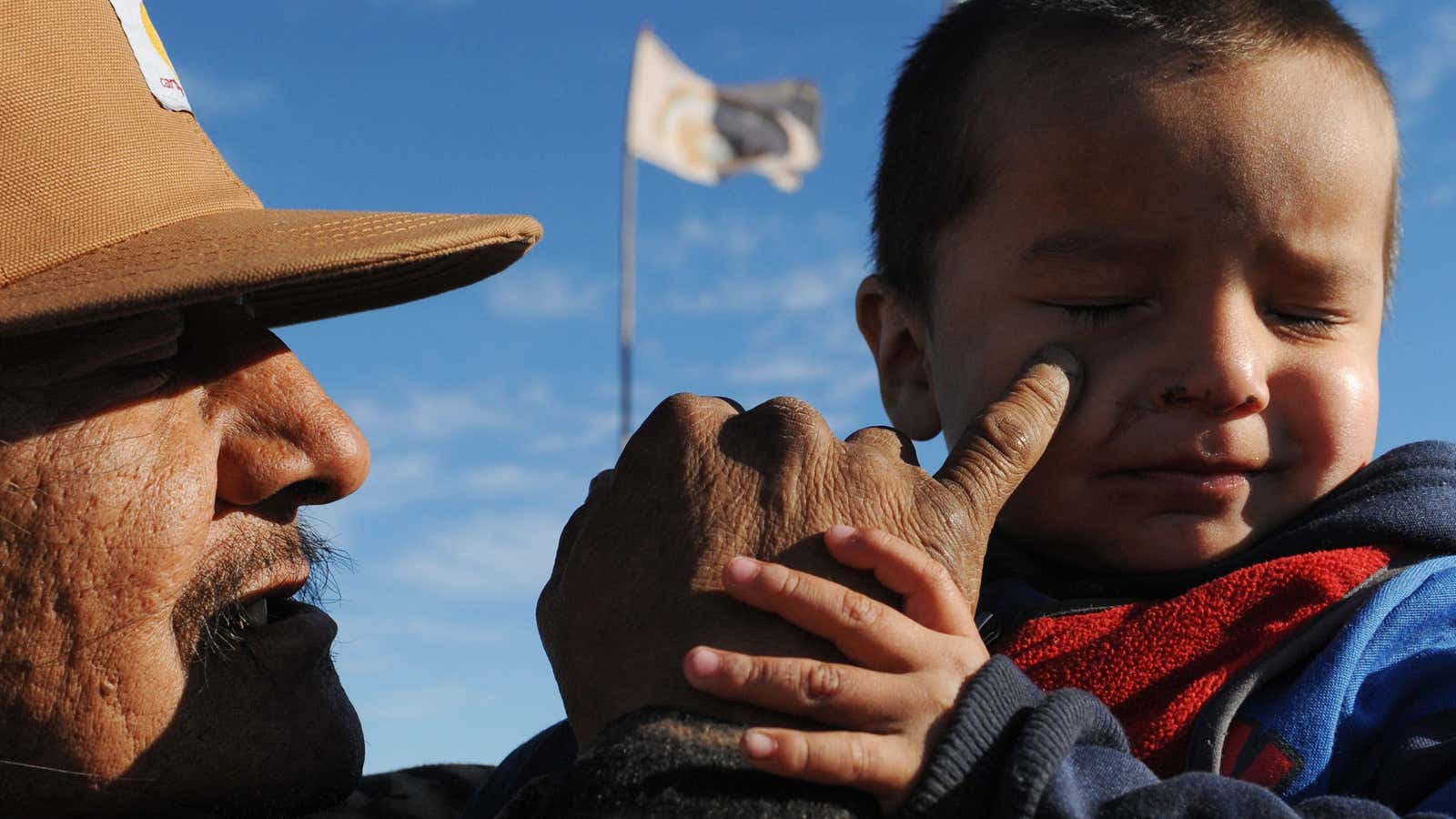Americans are gathering around tables today to commemorate the bounty shared by pilgrims and Native Americans during the first Thanksgiving nearly 400 years ago. But present-day Native Americans will be standing guard in the frigid North Dakota prairie to protect their lands from a Texas company that wants to build an oil pipeline underneath them.
The irony of this state of affairs is not lost on some Americans. Across the US, there are efforts to support the Standing Rock Sioux in their fight against the Dakota Access Pipeline project, which tribe members say will contaminate their drinking water and disturb sacred sites.
Activists plan to give the hundreds of protestors a Thanksgiving dinner, which will include five butchered buffalo paid for by actress Jane Fonda, according to Judy Wicks, one of the organizers. An Iowa church is funding the purchase of two cords of wood to keep them warm during the holiday. And a contingent of Fort Lewis College students in Colorado will be bringing other supplies and solidarity.
Just last Sunday, law enforcement officers clashed with Standing Rock protestors, hosing them down with water cannons in sub-freezing weather and firing at them with rubber bullets and tear gas. Seventeen of them had to go the hospital, including some who were treated for hypothermia. “This is far more threatening to human life than any other time of confrontation with law enforcement,” Dave Archambault II, the Standing Rock Sioux tribe’s chairman, told the New York Times (paywall).
The authorities say they were responding to violence by protestors. ”We’re just not going to let people or protesters in large groups come in and threaten officers, that’s not happening,” said Morton County Sheriff Kyle Kirchmeier, according a post on his department’s Facebook page.
The face-off between the two groups has lasted for months, ever since Energy Transfer Partners, the Dallas-based company behind the $3.7 billion Dakota Access project, moved to start the contested portion of the pipeline, which will run under the Missouri River near the Standing Rock Sioux reservation. The whole pipeline would stretch for 1,172 miles (1,886 km), from North Dakota to Illinois, transporting a daily half million barrels of light sweet crude from the Bakken and Three Forks formations to Midwest refineries. Last week, the federal government delayed its decision on constructing the pipeline to consult with the tribe, fanning tensions further.
The conflict is yet another manifestation of the political and cultural divisions that are splitting the country—the same ones that have many Americans dreading the prospect of entertaining relatives with opposing political views for Thanksgiving. In today’s United States, breaking bread with “the other” is becoming a true test of humanity.
